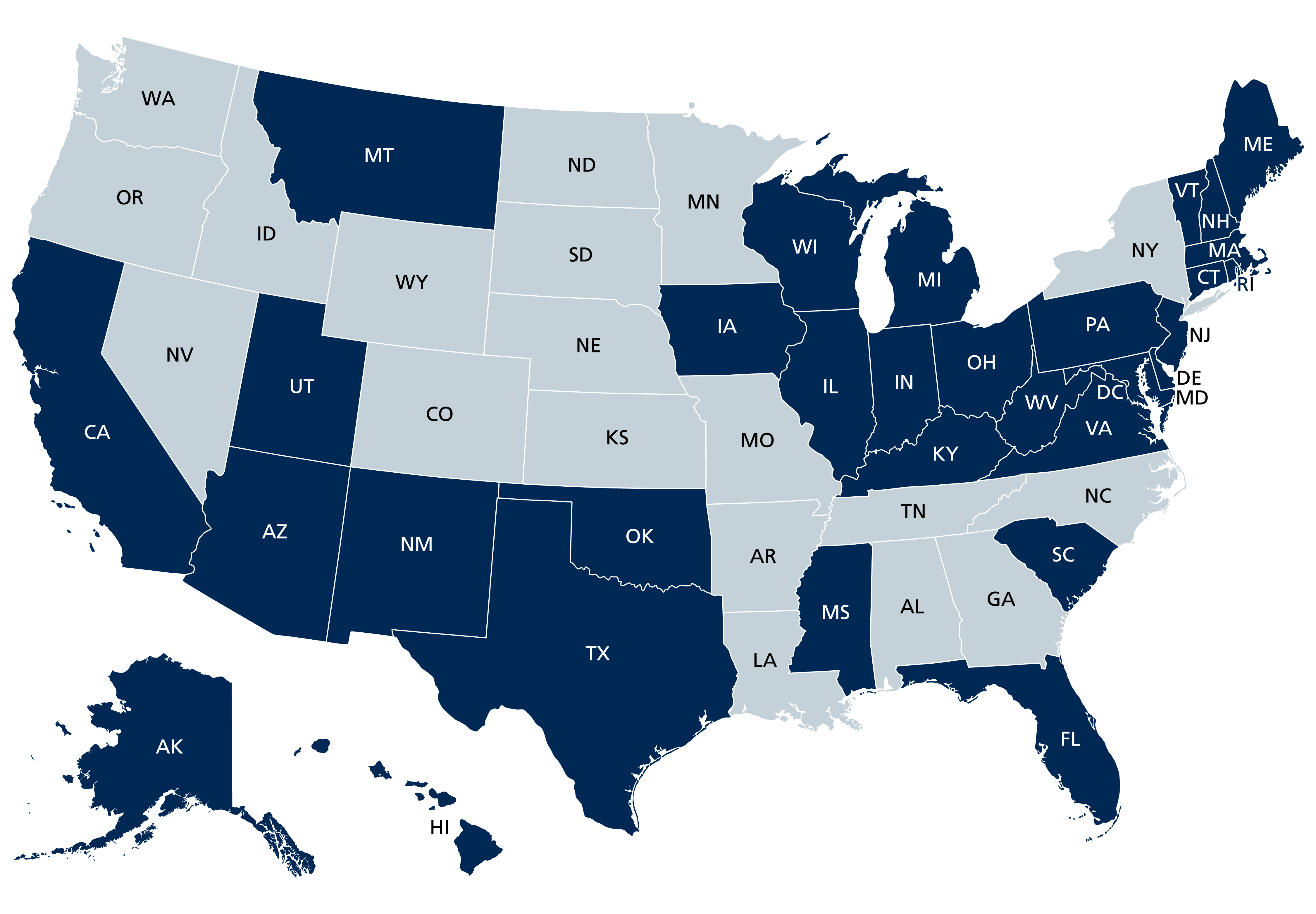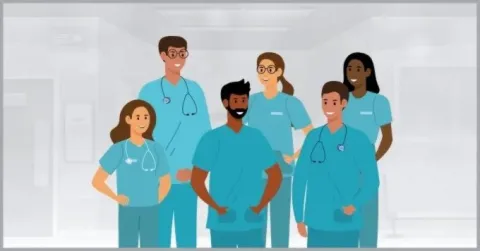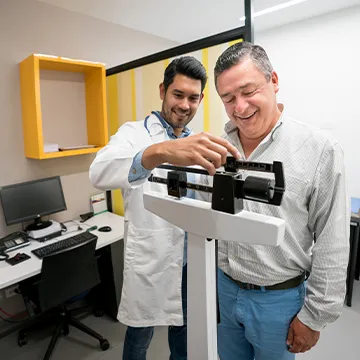Post-Graduate/APRN Certificate
Save Time & Money
Complete your post-graduate/APRN certificate in just over a year with competitive tuition.
Clinical Placement Support
Benefit from dedicated placement assistance at no extra cost during each clinical rotation.
Proven Success
Join Wilkes APRN graduates who have achieved above-average pass rates on certification exams.
Focus Your Practice
Three APRN tracks let you align your degree with nursing career goals and explore details.
Available Concentrations:
Expand Your Scope as a Nurse Practitioner
At Wilkes University, we’re dedicated to your growth as a nurse leader. As a student in our online Post-Graduate/APRN Certificate program, you’ll get access to valuable resources and a supportive community. Program highlights include:
- Highly competitive tuition
- 100% online, asynchronous coursework
- Clinical placement support—at no extra cost
- Personalized guidance for your student journey
- Strong first-time certification pass rates
Ready to branch into a new area of advanced practice? Our online Post-Graduate/APRN Certificate program lets you specialize in mental health care, family care, or adult-gerontology.
Admission Requirements
Applicants will be evaluated on an individual basis based on the following criteria.
- Master’s or doctoral degree in nursing (3.0 GPA) with official transcripts from an institution with programmatic (ACEN, NLNAC, CCNE) and regional accreditation*
- A current unencumbered RN license; APRN license if appropriate**
- Current resume or curriculum vitae.
- Check state authorization
These admissions standards represent the minimum eligibility requirements for programs. Admission committee members reserve the right to request additional information from candidates as needed for a more in-depth review of qualifications.
Transfer Credits: Potential transfer course grades must be a grade of B (3.0) or better.
*Wilkes accepts transfer credits based on course information and the knowledge of certification requirements.
In the event that Wilkes University accepts transfer credits (using the submitted documents), students are responsible for additional information and requests related to transferred courses made by relevant certification organizations (ANCC and AANP). This may impact the ability to complete board certification. Students are responsible for assuming the cost associated with other certification requirements.
* Students who graduated from a non-programmatically accredited institution and meet all other admission requirements will be evaluated on a case-by-case basis. Admission is not guaranteed.
**Applications presenting a history of disciplinary action on professional licenses will be subject to an additional review process by the Special Licensure Discrepancy Committee of the University.

Please note that prior to beginning and continuing in any of the nursing programs with Wilkes University, you must be located in an authorized state and be licensed in the state where you intend to complete your clinical activities, per that state’s clinical requirements. Your location (which may be your state of residency) and clinical activity do not need to be in the same state, as long as Wilkes is authorized in both states.
Save Time & Money
Wilkes University offers one of the quickest and most cost-effective ways to enhance your graduate education, especially in contrast to national competitors. Our tuition is only $786 per credit hour. Depending on which post-graduate APRN certificate concentration you choose, the total tuition cost ranges from $11,004 to $23,580. Moreover, we offer several forms of financial aid to qualifying nursing students. To learn more about financial aid options, access your free program guide.
See how Wilkes compares to other online post-graduate APRN certificates in the table below.
| Compare Programs | Wilkes University | Regis College | Maryville University | Duquesne University |
|---|---|---|---|---|
| Total Tuition & Fees | $11,004 - $23,580 |
$30,690 - $39,600 |
$23,577 - $30,894 |
$53,955 - $57,225 |
| Number of Credits | 27 - 30 | 31 - 40 | 29 - 38 | 33 - 35 |
| Clinical Hours | 500 - 584 | 664 | 580 - 745 | 550 - 750 |
| Months to Complete | 12 - 18 | 20 - 24 | 24 - 32 | 30 |
| Starts Per Year | 3 | 3 | 6 | 3 |
Source: Proprietary research
Why Wilkes University?
For over 40 years, the Passan School of Nursing at Wilkes has been recognized and respected in nursing. Our dedicated faculty and staff will connect and support you from enrollment through graduation, giving you the confidence you need to elevate your career. During the program* and upon graduation, Wilkes nurses have found success at leading healthcare providers, including:
- Geisinger
- Lehigh Valley Health Network
- St. Luke’s Health Network
*While we work diligently to support all students, we cannot guarantee placement.
* The baccalaureate degree in nursing/master's degree in nursing/ Doctor of Nursing Practice and post-graduate/APRN certificate programs at Wilkes University are accredited by the Commission on Collegiate Nursing Education (www.ccneaccreditation.org)
Stress Less with Clinical Placement Support
Clinical practicums are an exciting opportunity for students to apply what they’ve learned in real-world settings. However, finding a local placement can be challenging, requiring significant time and effort to identify and secure clinical sites and preceptors.
We aim to take the stress out of the process by offering built-in clinical placement support—at no additional cost. Our team works diligently to secure high-quality placements that align with your goals and program guidelines, so you can focus on building your competencies as a nurse practitioner, not on navigating logistics.
Wilkes nurses have found success at leading healthcare providers including:
- Gelsinger
- Lehigh Valley Health Network
- St. Luke’s Health Network
While we cannot guarantee every clinical placement, our success rates consistently exceed the national average—highlighting our commitment to making the process as seamless as possible.
What Will You Learn During Clinicals?
Clinical placements are a cornerstone of the Wilkes Post-Graduate/APRN Certificate program, offering students hands-on opportunities to apply advanced nursing skills in real-world settings. You’ll develop expertise in conducting comprehensive patient assessments, creating evidence-based care plans, managing chronic conditions, promoting wellness, and more.
Clinicals also emphasize leadership, teamwork, and patient-centered care, with opportunities to collaborate across disciplines and advocate. By the end of your clinical experience, you’ll be prepared to deliver specialized, high-quality care as a confident nurse practitioner.
As a Post-Grad/APRN student, here’s what you can expect during clinicals:
- Experience diverse healthcare settings, from hospitals to community clinics.
- Work with varied patient populations that align with your goals.
- Receive personalized support from Wilkes faculty, your Student Success Coach, and an on-site preceptor.
- Gain 1:1 mentorship to enhance your clinical expertise and confidence.
- Build valuable professional networks within your chosen specialty.
Curriculum Sample
Below is a sample list of courses you will take as part of the online Post-Graduate/APRN Certificate program. All courses are 12 weeks long. To see the full program curriculum, Access Your Program Guide.
This course provides an overview of the normal physiologic and pathologic mechanisms of disease and serves as one primary component of the foundation for clinical assessment, decision-making and management. The course will prepare the advanced practice nurse for interpreting changes in normal function that results in symptoms indicative of illness in patients across the lifespan (Credits: 3).
This course provides the basic principles of pharmacodynamics, pharmacokinetics and pharmacotherapeutics for broad categories of drugs. Purpose of action, common interactions and contraindications of major drug categories are highlighted. Case studies are integrated to provide students the opportunity to demonstrate application of pharmacological theory in advancing nursing practice (Credits: 3).
The nurse practitioner will develop processes for formulating differential diagnoses of acute and chronic physical and mental illnesses in the primary care setting across the lifespan. A case-study approach is integrated to prepare students for management of health status of patients through the implementation of strategies specific to the synthesis of data from multiple sources that promote quality of care outcomes for patients (Prerequisites: NSG 530, NSG 533; Credits: 2).
This course is designed to introduce the advanced practice nursing student to the issues facing culturally diverse, rural and underserved populations. The theory can be integrated into clinical practice for patients and families in primary care settings to promote an understanding of differences and issues that impact the comprehensive planning of healthcare services (Credits: 2).
This course presents an overview of the full and comprehensive health assessment of patients across the life span. Emphasis on multiple aspects of assessment including physical, functional, and mental health assessment along with transcultural variations, will prepare the student for advanced nursing practice.
Program Outcomes
Becoming a nurse practitioner or obtaining another additional specialty improves your ability for continuity of care and increases your job security. According to the U.S. Bureau of Labor Statistics, NPs earn an average salary of $120,680 jobs and job growth is expected to increase 46% by 2031. NPs are in demand in hospital settings, outpatient care centers and private practice—and the need will increase as our nation’s population ages.
This program at Wilkes University prepares students to:
- Engage in lifelong learning in a constantly evolving and multicultural world.
- Demonstrate competence in the development of scientific inquiry relevant to clinical practice, administration, or education.
- Utilize leadership strategies that foster improvement of patient and population health.
- Advance nursing practice by translating evidence in a variety of roles and areas of practice.
- Improve healthcare outcomes through interprofessional collaboration.
- Participate in lifelong learning as a part of advancing nursing practice.
What Will You Learn in the Post-Graduate/APRN Certificate Program?
Wilkes University offers a suite of highly respected programs that give you the advanced skills needed to:
- Provide higher quality and more timely care to patients.
- Excel in various settings, as well as leadership roles.
- Serve culturally diverse, rural and underserved communities.
- Raise your voice to advocate for change in healthcare.
How do Wilkes nurses demonstrate excellence?
By translating their knowledge into success on certification exams—proving they are confident and competent when it matters most. The table below highlights certification pass rates for Wilkes nurses across NP tracks, consistently exceeding national averages in recent years.
| YEAR 2023 | ||
|---|---|---|
| Program | Certification Pass Rate: All Takers | National Pass Rate |
| Psychiatric/Mental Health Nurse Practitioner (PMHNP) | 95.4% | 90% |
| Family Nurse Practitioner (FNP) | 84% | *74% |
| Adult-Gerontology Primary Care Nurse Practitioner (AGPCNP) | 91.6% | 80% |
*AANP National Pass Rate 2022, most recent data available
FAQs
Admissions
Information can be found on our Get Started page, and by completing the form at the top of the page. Or, you can contact an enrollment advisor by emailing us at admissions@onlinenursingdegrees.wilkes.edu, calling us at 888-413-5633 , or scheduling a time to chat.
We do the heavy lifting for you. For more information on the nursing clinical placement process, visit our Clinical Placement Services page, access your free program guide , or email us at admissions@onlinenursingdegrees.wilkes.edu. You can also call us directly at 888-413-5633 or schedule a time to speak with us.
No, there are no GRE or GMAT requirements to enroll.
Yes, they're accredited by the Commission on Collegiate Nursing Education (CCNE)*.
*The baccalaureate degree in nursing/master’s degree in nursing/doctor of nursing practice, and post-graduate APRN certificate programs at Wilkes University are accredited by the Commission on Collegiate Nursing Education (www.ccneaccreditation.org).
Note: The length of time listed is based on the total amount of required courses for each program. An analysis of previous coursework may shorten total length of time to complete.
Course length is 12 weeks, and each program varies:
Post-Graduate/APRN Certificate program:
- Family Nurse Practitioner (FNP) concentration: 12 courses / 5 terms / 1.67 years
- Adult-Gerontology Primary Care Nurse Practitioner (AGPCNP) concentration: 10 courses / 4 terms / 1.3 years
- Psychiatric/Mental Health Nurse Practitioner (PMHNP) concentration: 11 courses / 5 terms / 1.67 years
Financial Aid
Yes, financial aid is available to qualifying nursing students. Please fill out a form or schedule an appointment with an Enrollment advisor to learn if you qualify for financial assistance. You can also give us a call at 888-413-5633 . We're happy to help!
Tuition
Note: Tuition listed is based on the number of required courses for each program. An analysis of previous coursework may allow for fewer courses and a lower net cost, when applicable.
Each program is different but highly competitive. A review of official transcripts will determine a student’s course of study.
Post-Graduate/APRN Certificate program
Tuition totals presented are maximum amounts not including fees.
- Psychiatric/Mental Health Nurse Practitioner (P.M.H.N.P.) concentration: $22,794
- Family Nurse Practitioner (F.N.P.) concentration: $23,580
- Adult-Gerontology Primary Care Nurse Practitioner (A.G.P.C.N.P.) concentration: $21,222
Other
Yes. They’re accredited by the CCNE*.
*The baccalaureate degree in nursing/master’s degree in nursing/doctor of nursing practice, and post-graduate APRN certificate programs at Wilkes University are accredited by the Commission on Collegiate Nursing Education (www.ccneaccreditation.org).
Excluding nursing clinicals, all coursework is 100% online. Each course experience is primarily asynchronous.
Read More About Wilkes APRN Programs

Preparing for Licensure Exams: Strategies for Online Students
Preparing for licensure exams is crucial for nursing students, including those in online programs. Success comes from joining study groups, following structured study plans, and utilizing resources… Read More

Cultural Competence in Nursing
What is cultural competence in nursing, and how does it benefit clinicians and their patients? Learn about the importance of cultural competence in nursing. Read More

What is a Post Master’s Certificate and Why Should I Get One?
Let’s go over what a post-master’s certificate in nursing is, the basic types of certificates available, and the possible benefits of pursuing one. Read More


















